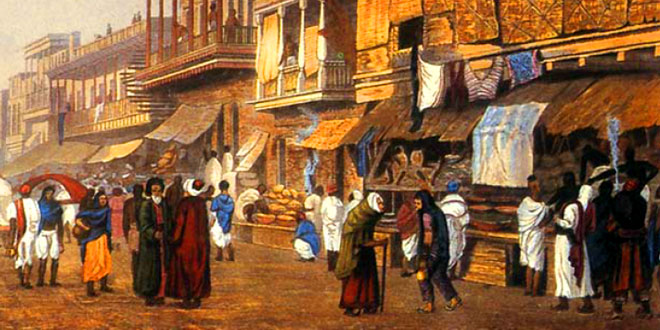Question: Write a short note on classical dances of India.
Answer: The Sangeet Natak Academy, accords “classical” status to eight dance forms of India.These forms include Bharatanatyam( Tamil Nadu), Odissi( Orissa), Manipuri (Manipur), Kathakali (Kerala), Kuchipudi (Andhra Pradesh), Mohiniaattam, Kathak(Lucknow) and Yakshagana. These dance forms have their own set of rules. Most of these dance forms draw their origin to the Natya Shastra of Bharata Muni of ancient times (400 B.C.E).
Question: What do you know about Rajput tradition of heroism? Write in brief.
Answer: Rajputs are closely associated with the culture of Rajasthan. It is they who made this culture distinctive. The cultural traditions of Rajasthan were linked with the ideals and aspirations of rulers. From about the eighth century, most of the present-day Rajasthan was ruled by various Rajput families. The name of Prithviraj is worth-mentioning because he was one of the ablest Rajput rulers. These Rajput rulers ares known for their bravery and sense of sacrifice. They cherished the ideal of the hero who fought valiantly, often choosing death on the battlefield rather than face defeat. Stories about Rajput heroes were recorded in poems and songs, which were recited by specially trained minstrels. These preserved the memories of heroes and were expected to inspire others to follow their examples. Ordinary people also liked these stories which often depicted dramatic situations and a range of strong emotions in the forms of loyalty, friendship, love, valour, anger etc.
Question: Write a brief note on early Bengali literature.
Answer: There are two categories of early Bengali literature:
- The first includes translations of the Sanskrit epics, the Mangalakavyas, auspicious poems, dealing with local deities, and Bhakti literature such as the biographies of Chaitanyadeva, the leader of the Vaishnava Bhakti movement.
- The second includes Nath literature such as the songs of Maynamati and Gopichandra, stories concerning the worship of Dharma Thakur, and fairy tales, Folk tales and ballads. The texts belonging to the first category are written while those belonging to the second category circulated orally.
Question: Who were the pirs? What was their position in the society?
Answer: Pirs were spiritual leaders having supernatural powers. They also functioned as teachers and adjudicators. When early settlers in Bengal sought some order and assurance in the unstable conditions of the new settlements pirs favoured them and gave them full moral support. People viewed them as respectful figures. The cult of pirs became very popular and their shrines can be found everywhere in Bengal.
Question: What is the significance of fish in Bengal?
Answer: Bengal is a riverine plain which produces abundant rice and fish. These two items are important foods of the Bengalis. Fishing has always been an important occupation and Bengali literature contains several references to fish. What is more, terracotta plaques on the walls of temples and viharas depict scenes of fish being dressed and taken to the market in baskets.
Due to the popularity of fish in the local diet the Bengal Brahmanas also started eating fish. The Brihaddharma Purana, a thirteenth-century Sanskrit text from Bengal, permitted them to eat certain varieties of fish.
 Class Notes NCERT Solutions for CBSE Students
Class Notes NCERT Solutions for CBSE Students



Very bad I wanted explanation for this chapter